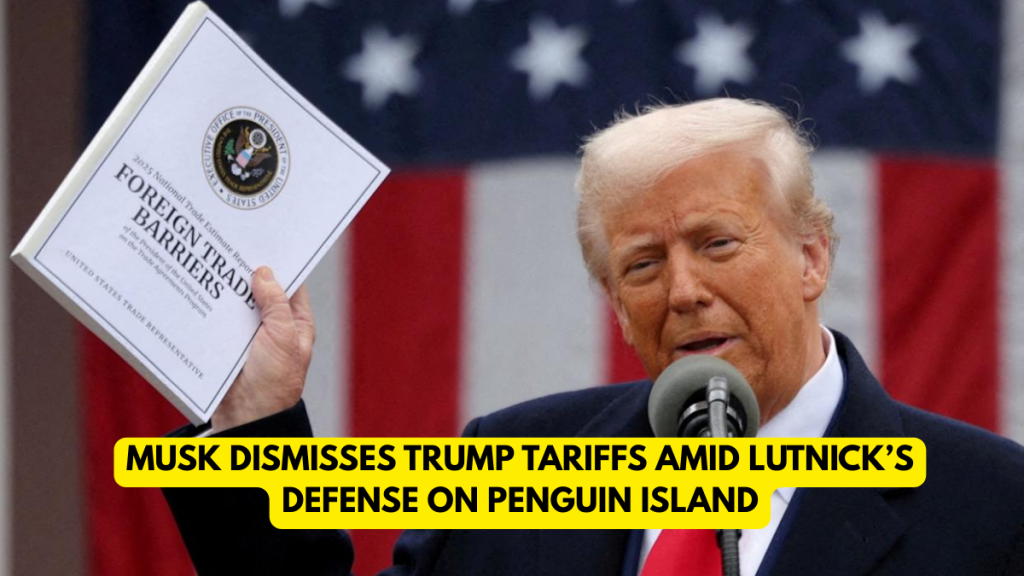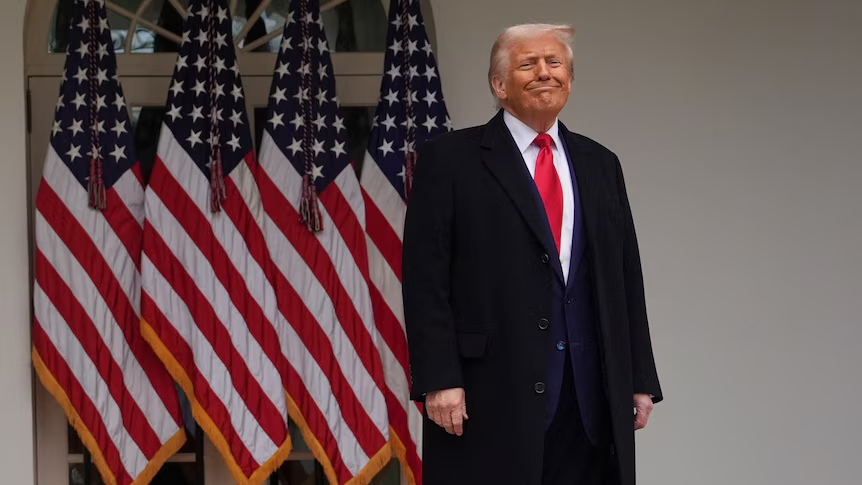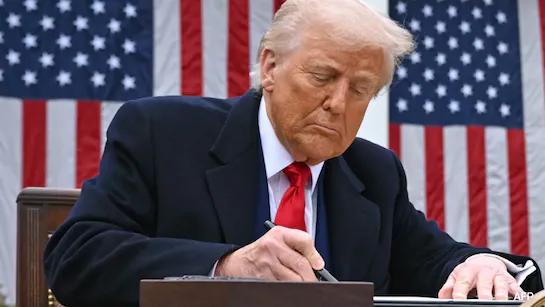
In an unusual twist in U.S. trade policy discourse, Elon Musk has once again publicly distanced himself from Donald Trump’s tariff plans—this time by ridiculing a justification given for duties placed on an uninhabited island populated only by penguins.
Musk responded to U.S. Commerce Secretary Howard Lutnick’s explanation regarding a 10% tariff on the Heard and McDonald Islands, Australian territories with no human inhabitants, by simply posting: “this is funny.” The Tesla and SpaceX CEO, known for his blunt remarks on X (formerly Twitter), appeared to mock what many view as a peculiar and unnecessary trade measure.
The Penguin Island Tariff
The controversy centers on the Trump administration’s sweeping tariff plan, which includes placing duties on all imported goods, including from remote territories like the Heard and McDonald Islands. These islands, located in the southern Indian Ocean, are protected environmental zones, known primarily for their penguin populations—not international trade.
Commerce Secretary Lutnick defended the decision by asserting the administration’s goal was to close all possible loopholes in the global trade system. “If you leave anything off the list,” he explained, “countries that try to basically arbitrage America go through those countries to us” (The Independent).
Despite the logical framing, the inclusion of penguin-inhabited islands in a major economic policy raised eyebrows across the political and economic spectrum. Critics, including Musk, saw it as a sign of overreach and lack of nuance in the administration’s tariff strategy.
Musk’s Broader Opposition to Tariffs

This isn’t the first time Musk has pushed back against tariffs. In recent months, he has advocated for free trade between major global economies, particularly between the U.S. and the European Union. In a recent statement posted on X, Musk said, “I hope it is agreed that both Europe and the United States should move, ideally, in my view, to a zero tariff situation … creating a free trade zone.”
Musk has frequently cited economist Milton Friedman’s work in arguing that protectionist policies hurt consumers and distort markets. He even referenced Friedman’s iconic “pencil example” to illustrate how global cooperation benefits supply chains (New York Post).
The CEO has warned that such sudden and sweeping tariff measures could negatively affect U.S. manufacturers, particularly those relying on international parts, like Tesla. For electric vehicle makers, global supply chains are critical, and tariff disruptions could impact production costs and timelines.
Economic Fallout and Market Reaction
The backlash to Trump’s tariff plans has been swift on Wall Street. Following the announcement, the S&P 500 experienced its worst single-day drop since 2020, falling by 4.9% and wiping out roughly $2.5 trillion in market value (The Guardian).
This significant downturn reflects investor concerns that the new tariffs may trigger trade retaliation from major economies, further escalating global economic uncertainty. European and Asian markets also responded negatively, bracing for possible disruptions in trade flows.
In response, Trump has doubled down, framing the tariffs as a necessary corrective to what he calls “unfair trade practices” by China and European nations. He has repeatedly emphasized the need to bring manufacturing jobs back to the United States.
Government’s Position
The U.S. Department of Commerce supports the move, stating that the new tariffs are designed to “level the playing field” and protect domestic industries. More details on the tariff implementation and policy reasoning can be found on the U.S. Department of Commerce website.
Meanwhile, the U.S. Trade Representative (USTR) has also outlined the broader tariff policy under Section 301 of the Trade Act, allowing the president to respond to unfair foreign trade practices. Details can be accessed on the USTR official website.
What Comes Next?

With political tensions rising and market volatility increasing, many businesses and analysts are urging the administration to reconsider the sweeping nature of these tariffs. The inclusion of territories like the Heard and McDonald Islands in the tariff list has come to symbolize the broader debate between protectionism and globalization.
Musk’s continued vocal opposition adds pressure, especially given his influence over tech and manufacturing sectors. His calls for a zero-tariff agreement may gain traction among lawmakers concerned about economic stability and global competitiveness.
For now, however, the tariff policy remains in place, and even penguin-inhabited islands are not exempt.



